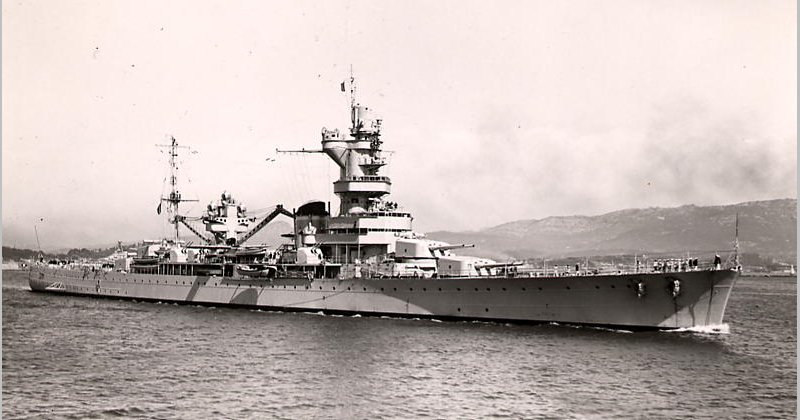- Posts: 512
- Thank you received: 792
Today In History
- Sasha
-

- Offline
- To triumphed over evil, you need only one thing - to good people inaction.
Less
More
7 years 8 months ago #517
by Sasha
Replied by Sasha on topic Today In History
The following user(s) said Thank You: snowman, ShayoX, WANGER
Please Log in or Create an account to join the conversation.
- WANGER
-

- Offline
- Meine Ehre heißt Treue
Less
More
- Posts: 168
- Thank you received: 176
7 years 8 months ago #518
by WANGER
Replied by WANGER on topic Today In History
The following user(s) said Thank You: snowman, Nikita, Sasha, ShayoX
Please Log in or Create an account to join the conversation.
- Nikita
-
 Topic Author
Topic Author
- Offline
- "Never interrupt an enemy who's making a mistake." Napoléon Bonaparte
Less
More
- Posts: 3755
- Thank you received: 3612
7 years 8 months ago - 7 years 8 months ago #519
by Nikita
Replied by Nikita on topic Today In History
May 29, 1953
" Well, George, we knocked the bastard off! "
At 11:30 am, New Zealand mountaineer Edmund Hillary and Nepalese Sherpa Tenzing Norgay vanquish the highest summit on Earth .
" Well, George, we knocked the bastard off! "
At 11:30 am, New Zealand mountaineer Edmund Hillary and Nepalese Sherpa Tenzing Norgay vanquish the highest summit on Earth .
Last edit: 7 years 8 months ago by Nikita.
The following user(s) said Thank You: snowman, Sasha, ShayoX, WANGER, DanJ
Please Log in or Create an account to join the conversation.
- Sasha
-

- Offline
- To triumphed over evil, you need only one thing - to good people inaction.
Less
More
- Posts: 512
- Thank you received: 792
7 years 8 months ago #520
by Sasha
Replied by Sasha on topic Today In History
The following user(s) said Thank You: snowman, Nikita, Maki, WANGER
Please Log in or Create an account to join the conversation.
- Nikita
-
 Topic Author
Topic Author
- Offline
- "Never interrupt an enemy who's making a mistake." Napoléon Bonaparte
Less
More
- Posts: 3755
- Thank you received: 3612
7 years 8 months ago - 7 years 8 months ago #521
by Nikita
Replied by Nikita on topic Today In History
June 14, 1940
Operation Vado
Note : I provide here a large summary of the original French Wikipedia post, because Wikipedia provides only French, Italian and Czech languages for this page.
Four days after fascist Italy led by Mussolini declared war to France, the French Navy starts Operation Vado. While the troops of the French Armée des Alpes, so three moutain troops divisions and two colonial troops divisions, are successfully resisting against Italian invasion during the Battle of the Alps, the French Navy will try to destroy the Italian logistic by naval bombardments of the Italian ports, especially those of Genoa and Savona.
The French task force, led by admiral Duplat, consists in four heavy cruisers, Algérie, Colbert, Dupleix and Foch, protected by eleven destroyers and four submarines. Facing them, Italian forces consist in coastal artillery of the ports fortifications and the 13th flotilla of motor torpedo boats of the Regia Marina.
At 04:30 a.m., the French fleet, having sailed from the port of Toulon, opens fire on the Italian ports, without response at first. During the engagement, only the destroyer Albatros is hit by an Italian coastal battery, causing the death of twelve sailors. A little later, the French ships are taken apart by the Italian torpedo boats, without serious damages. At about noon, the French fleet finally returns to the port of Toulon.
On balance, although the damages inflicted on the Italian logistic structures are relatively minimal, Operation Vado will highlight the weakness of the Italian coastal defenses, a weakness that will be exploited the next year by the Force H of the Royal Navy, in the bombing of the port of Genoa during Operation Grog that will be a total British success.
Operation Vado
Note : I provide here a large summary of the original French Wikipedia post, because Wikipedia provides only French, Italian and Czech languages for this page.
Four days after fascist Italy led by Mussolini declared war to France, the French Navy starts Operation Vado. While the troops of the French Armée des Alpes, so three moutain troops divisions and two colonial troops divisions, are successfully resisting against Italian invasion during the Battle of the Alps, the French Navy will try to destroy the Italian logistic by naval bombardments of the Italian ports, especially those of Genoa and Savona.
The French task force, led by admiral Duplat, consists in four heavy cruisers, Algérie, Colbert, Dupleix and Foch, protected by eleven destroyers and four submarines. Facing them, Italian forces consist in coastal artillery of the ports fortifications and the 13th flotilla of motor torpedo boats of the Regia Marina.
The heavy cruiser Algérie
At 04:30 a.m., the French fleet, having sailed from the port of Toulon, opens fire on the Italian ports, without response at first. During the engagement, only the destroyer Albatros is hit by an Italian coastal battery, causing the death of twelve sailors. A little later, the French ships are taken apart by the Italian torpedo boats, without serious damages. At about noon, the French fleet finally returns to the port of Toulon.
On balance, although the damages inflicted on the Italian logistic structures are relatively minimal, Operation Vado will highlight the weakness of the Italian coastal defenses, a weakness that will be exploited the next year by the Force H of the Royal Navy, in the bombing of the port of Genoa during Operation Grog that will be a total British success.
Last edit: 7 years 8 months ago by Nikita.
The following user(s) said Thank You: Maki
Please Log in or Create an account to join the conversation.
- Maki
-

- Offline
Less
More
- Posts: 1274
- Thank you received: 1801
7 years 8 months ago #522
by Maki
Replied by Maki on topic Today In History
June 14, 1951: UNIVAC, the first commercialized computer

Major physical features
UNIVAC I used about 5,000 vacuum tubes,[19] weighed 16,686 pounds (8.3 short tons; 7.6 t),[20] consumed 125 kW, and could perform about 1,905 operations per second running on a 2.25 MHz clock. The Central Complex alone (i.e. the processor and memory unit) was 4.3 m by 2.4 m by 2.6 m high. The complete system occupied more than 35.5 m² (382 ft²) of floor space.
The random access memory !!!!
Before there was random access memory, there was delay line memory. It was random in a different sense; it involved turning electrical pulses into sound waves, sending them through long tubes of mercury, and re-electrifying them at the other end.
The technology had its roots in the work of engineer J. Presper Eckert, who developed line delay systems to improve radar during World War II. Instead of storing data in individual bits, it was compressed down to sound waves and sent through a medium that slowed them down (initially mercury, then other substances, and finally wire). At the other end, they were re-electrified, processed, and then sent back through the tube. Because of slowing that occurred in the tube's substance, hundreds of pulses of data could be sent in a single tube—hence the name "delay line"—bouncing back and forth until they were needed.
Fortunately, the technology is evolving quickly, imagine playing HD2 with this
Major physical features
UNIVAC I used about 5,000 vacuum tubes,[19] weighed 16,686 pounds (8.3 short tons; 7.6 t),[20] consumed 125 kW, and could perform about 1,905 operations per second running on a 2.25 MHz clock. The Central Complex alone (i.e. the processor and memory unit) was 4.3 m by 2.4 m by 2.6 m high. The complete system occupied more than 35.5 m² (382 ft²) of floor space.
The random access memory !!!!
Before there was random access memory, there was delay line memory. It was random in a different sense; it involved turning electrical pulses into sound waves, sending them through long tubes of mercury, and re-electrifying them at the other end.
The technology had its roots in the work of engineer J. Presper Eckert, who developed line delay systems to improve radar during World War II. Instead of storing data in individual bits, it was compressed down to sound waves and sent through a medium that slowed them down (initially mercury, then other substances, and finally wire). At the other end, they were re-electrified, processed, and then sent back through the tube. Because of slowing that occurred in the tube's substance, hundreds of pulses of data could be sent in a single tube—hence the name "delay line"—bouncing back and forth until they were needed.
Fortunately, the technology is evolving quickly, imagine playing HD2 with this
The following user(s) said Thank You: snowman, NL, ShayoX
Please Log in or Create an account to join the conversation.
Birthdays
- Ikaros in 2 days
- jamaicadomnului in 2 days
- Stonewall in 5 days
- VCG_freddy in 6 days










